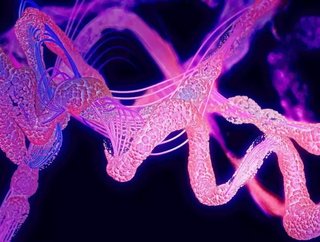Will AI protein generation accelerate drug development?

Rather unexpectedly, the Chalmers University of Technology, a leading institution in Sweden, recently released research that demonstrates artificial intelligence’s (AI) newfound capability to generate novel, functionally active proteins.
“What we are now able to demonstrate offers fantastic potential for a number of future applications, such as faster and more cost-efficient development of protein-based drugs,” said Associate Professor Aleksej Zelezniak, lead researcher of the study.
The researchers shared that protein-based drugs are very common ─ the most commonly-prescribed being insulin for diabetic patients who require a self-administered injection each day to maintain their blood sugar levels and maintain a normal, healthy life. The greater majority of most effective, and subsequently most expensive, cancer treatments are also protein-based, and, appropriate to the world’s struggle of the day, so too are the antibody formulas that are being used to create the incredibly important COVID-19 vaccinations.
Developing Superior Methods
At the moment, protein engineering methods rely on the introduction of random mutations to existing protein sequences ─ like most experiments, really. The problem is, every time scientists introduce a new mutation to the sequence, the protein actively declines.
“Consequently, one must perform multiple rounds of very expensive and time-consuming experiments, screening millions of variants, to engineer proteins and enzymes that end up being significantly different from those found in nature,” said Zelezniak. “This engineering process is very slow, but now we have an AI-based method where we can go from computer design to working protein in just a few weeks.”
ProteinGAN’s AI-powered Synthesis
A new AI-based approach to protein engineering has been introduced to the world from a group effort between the researchers and external collaborators: ProteinGAN. This method takes a generative deep learning approach to protein synthesis.
Like all AI and machine learning (ML) based systems, ProteinGAN can be fed repositories of data from already studied proteins; it then analyses the data with sophisticated analysis tools and starts to create new ideas and subsequent proteins of its own. Simultaneously, other parts of the AI work out whether the synthetic proteins that it creates are fake or not ─ all of the created proteins go through the system on a loop until the AI can’t tell the natural and synthetic proteins apart anymore.
A Cost-efficient and Increasingly Sustainable Solution
Martin Engqvist, Assistant Professor in the Department of Biology and Biological Engineering, was part of the team that designed the experiments to test the AI-synthesised proteins. On the topic, he stated that “Accelerating the rate at which we engineer proteins is very important for driving down development costs for enzyme catalysts. This is the key to realising environmentally sustainable industrial processes and consumer products, and our AI model, as well as future models, will enable that. Our work is a vital contribution in that context.”
“This kind of work is only possible in the type of multidisciplinary environment that exists at our Division – at the interface of computer science and biology. We have perfect conditions to experimentally test the properties of these AI-designed proteins,” Zelezniak added.






